WITNESS RADIO MILESTONES
Uganda sets up a Commission of Inquiry to investigate into land management
Published
8 years agoon

As the Commission of Inquiry kicks off its investigations into land management in Uganda, witnessradio.org puts together necessary information about it from its mandate, composition, profiles of individuals on the said commission to the budget for purposes of making it easy for all stakeholders to follow.
COMPOSITION
Constituted by President Yoweri Kaguta Museveni on December 8th 2016, the commission is chaired by Lady Justice Catherine Bamugemereire, Olive Karazawe as Commission Secretary and Rutagaata Suuza as the lead counsel.
Other members include; Fred Ruhindi, Robert Ssebunya, Mary Oduka Ochan, Joyce Habasa, Dr. Rose Nakayi, George Bagonza Tinkamanyire, and Douglas Singiza, assistant secretary for research below we shall share with you their profiles.
With seven terms of reference to the first-ever inquiry into land matters, will spend at least Shs2bn to conduct its duties within six months.
The terms of reference include; Investigating and inquiring into the law, processes and procedures by which land is administered and registered in Uganda, inquiring into the role of the Uganda Land Commission in the management and administration of public land and reviewing of the effectiveness of the relevant bodies in the preservation of wetlands, forests and game reserves.
In discharging its duties, the Commission will also inquire and solicit views on the role of traditional cultural and religious institutions who own large tracts of land, assessing the legal policy framework governing land acquisition, investing and inquiring into effectiveness of the dispute resolution mechanism available to persons involved in land disputes and inquiring into any other matter connected with or incidental to the matters aforesaid.
The formation of the Commission of inquiry occurred for various reasons including general outcry on the land grabs and disputes that pit moneyed persons, foreign companies and politically connected individuals, tormenting the impoverished peasants through carrying out massive land grabs.
Other reasons that triggered the inquiry, according to Betty Amongi, the Lands Minister were; delayed transactions in land issues, unfair treatment of genuine land owners, tenants and problems related to acquisition, administration, management and titling of land.
LEGAL GUIDELINE ON FUNDING INQUIRIES
Judicial Commissions of inquiry such as this are guided by the Commissions of Inquiry Act CAP 166 Laws of Uganda. Section 14 states; “Commissioners appointed under this Act, shall not be entitled to any remuneration, unless the remuneration has been especially granted by the minister, beyond the actual expenses incurred in holding the inquiry, but the minister may direct what remuneration, if any, shall be to secretary, and other persons employed in or about any such commission.”
The act adds under the same section, clause (2) “such sums, so directed to be paid, shall be paid out if money provided by parliament.”
THE 1995 CONSTUTUTON AND THE LAND IN UGANDA
Article 237(1) of the constitution stipulates “land in Uganda belongs to the citizens of Uganda and shall vest in them in accordance with the land tenure systems provided for this constitution.”
Whereas clause (3) of the same article stipulates “land in Uganda shall be owned in accordance with the following tenure systems; customary, freehold, mailo, and leasehold.”
Since the promulgation of the 1995 Constitution of Uganda, Uganda enacted its first land act in 1998 and the land policy in 2013.
HISTORY
In 1975, disposed President Idi Amin moved the land Reform Decree 1975, which basically sought to overhaul the country’s land tenure system. Under Amin’s decree, all land was declared to be public land.
Land owned in freehold was converted to leases held from the government subject to development conditions.
With respect to customary land tenure, the decree removed the protection customary land owners had previously enjoyed under the Public Lands Act 1969. This land tenure system was, however, changed by the framers of the 1995 constitution, to re-vest the all land back to the citizens un all the aforementioned land systems.
COMMISSIONERS’ PROFILES
Catherine Bamugemereire
 A Master’s degree holder from Southern Methodical University, Dallas, USA, Bamugemereire has risen through the ranks in the Uganda’s judiciary.
A Master’s degree holder from Southern Methodical University, Dallas, USA, Bamugemereire has risen through the ranks in the Uganda’s judiciary.
She became state attorney in the early 90s before being appointed a Grade 1 Magistrate in 1994, rising to Chief Magistrate Buganda Road in 2004. She summarily quit the judiciary returning in 2010 as High Court judge in the Anti-Corruption Court division after returning from abroad.
She is currently a justice of Court of Appeal/Constitutional Court after being appointed in 2015.
Regarding the judicial Commission of inquiry work, Bamugemereire, came to the fore in 2013 when she was appointed to head Kampala Capital City Authority’s tribunal that made a lethal report which recommended among others, the impeachment of Lord Mayor Erias Lukwago.
In 2015, Bamugemereire was again named to chair a judicial commission of inquiry to inquire into the corruption tendencies and shoddy works in Uganda National Roads Authority. At the end of her six-month investigations, Bamugemereire’s commission recommended among others, to prosecute at least 20 top managers at UNRA at the time, selling off properties of the implicated officers to recover at least 10 trillion shillings that were lost due to their negligence.
The UNRA report also recommended for the blacklisting of road construction companies involved in doing the shoddy work, particularly Dott Services.
Olive Kazaarwe Mukwaya-Commission Secretary
She is a judicial officer with the Uganda Judiciary, presently stationed at the Commercial Division of the High Court as Deputy Registrar since January 2017.
Prior to the posting, Kazaarwe was an Ag. Registrar, Planning and Development, a Judiciary arm that partly coordinated the multi-million dollar DANIDA-funded Uganda Good Governance Project.
Under the Project, she directly supervised the implementation of a number of Judiciary development programs and Access to Justice Initiatives. Kazaarwe has a Post Graduate Diploma in Public Administration and Management from Uganda Management Institute, Post Graduate Diploma in Legal Practice from Law Development Center and a Bachelor of Laws from Makerere University and she has over 17 years of mainly judicial work experience, starting out as a Legal Associate with Ruyondo & Co Advocates in 1999.
She joined the Judiciary as a Grade One Magistrate in 2000 and rose to Senior Magistrate Grade One in 2004. In 2009, she became Personal Assistant to the then Deputy Chief Justice, Leticia Mukasa Kikonyogo, leaving on promotion as Chief Magistrate in 2010, and served in Hoima and Buganda Road Courts in Kampala up to 2014.
In May 2014, she was briefly posted to the Inspectorate of Courts as an Ag. Assistant Registrar, before she was assigned to manage the donor project and also works on the Executive of the National Association of Women Judges of Uganda as a secretary and engages in part-time work as an External Examiner at the Law Development Centre.
Ebert Isaiah Busobozi Byenkya- Lead Counsel
 He is a founding partner at Byenkya, Kihika and Company Advocates. He is one of Uganda’s top litigation lawyers, continuously ranked high in every edition of Chambers Global issued in the past decade.
He is a founding partner at Byenkya, Kihika and Company Advocates. He is one of Uganda’s top litigation lawyers, continuously ranked high in every edition of Chambers Global issued in the past decade.
Of recent, he was a Lead Counsel for President Yoweri Museveni in a Presidential Election petition filed to challenge the outcome of the 2016 elections.
He holds a Bachelor of Laws degree from Makerere University (1988) and a Diploma in Legal Practice from the Law Development Centre (1989).
Over the last decade, Byenkya has also established a thriving transaction advisory practice with hands-on experience in most of the largest infrastructure projects under taken to-date in Uganda. These include advising a consortium of lenders on the concession of the Kenya-Uganda Railway by the Governments of Kenya and Uganda to Rift Valley Railways Ltd and acting as legal counsel for the sponsors of Bujagali Hydroelectric power dam before, during and after project completion.
Byenkya is presently considered one of the leading energy lawyers in Uganda having advised on several energy projects of various sizes. He has also provided legal advice on several syndicated loan financing transactions in Uganda.
John Bosco Rujagaata Suuza-Assistant Lead Counsel
 He is the Commissioner of Contracts and Negotiations in the Attorney General’s Chambers at the Ministry of Justice and Constitutional Affairs.
He is the Commissioner of Contracts and Negotiations in the Attorney General’s Chambers at the Ministry of Justice and Constitutional Affairs.
Rujagaata, is also the designated Legal Assistant to the Attorney General and his duties broadly entail the provision of legal counsel to the Government and allied institutions on any matter; and guiding all Government negotiations both domestically and internationally.
His other duties mainly involve the drafting and reviewing of Government contracts, international treaties and all types of agreements to which the Government of Uganda is a party or in which it has an interest. He also represents the Attorney General in any forums both within and outside Uganda.
As the designated Legal Assistant to the Attorney General, his duties entail the provision of day-to-day and on-call professional assistance to the Attorney General.
He joined the Justice Ministry in 2000 at the rank of State Attorney, rose to Senior State Attorney (2005), Principal State Attorney (2010) and was assigned the current office with effect from March 2017.
He has, among other things, served as Government of Uganda Legal Counsel in negotiations on the Uganda – Tanzania Inter-Governmental Agreement on the East African Crude Oil Pipeline, and currently represents the Attorney General on the Government team spearheading the development of the Oil Refinery in Western Uganda.
He was also Legal Counsel for the Uganda Medical and Dental Practitioners Council for 10 years.
Rujagaata is also the coordinator of Uganda’s defence in the case concerning Armed Activities on the Territory of the Democratic Republic of the Congo (Democratic Republic of Congo v. Uganda) before the International Court of Justice (ICJ); and is the Desk Officer for the International Criminal Court (ICC) in the Ministry of Justice and Constitutional Affairs.
Robert Ssebunnya-Member
 Ssebunnya is a senior Presidential Advisor on Buganda Matters, a position he has held since 2006. He is also the President of the Uganda Heart Foundation, founder and former chairman of the Uganda Heart Institute.
Ssebunnya is a senior Presidential Advisor on Buganda Matters, a position he has held since 2006. He is also the President of the Uganda Heart Foundation, founder and former chairman of the Uganda Heart Institute.
Ssebunnya’s work-life started in 1965 as a Public Relations Assistant, and Export and Advertising Executive with the Madhvani Group.
He later worked as Executive Director of Uganda Development Corporation (Textiles); Minister of Health at Buganda Kingdom, Member of Parliament under the National Consultative Council; and Chairman of the Mpigi District Council, among others.
Mary Oduka Ochan-Member
 She is a renowned social advocate and economic development expert with vast experience in business management and administration, institutional development, and gender mainstreaming and analyst, among others.
She is a renowned social advocate and economic development expert with vast experience in business management and administration, institutional development, and gender mainstreaming and analyst, among others.
Ochan consulted on numerous prestigious projects including Ireland Aid Uganda’s HIV/AIDS programme, DANIDA agricultural sector programme support, World Bank/OPM NUSAF and the five-year strategic plan for Uganda Women’s situation room, among others.
Until recently, she was the senior advisor on HIV/AIDS for Irish Aid (2003 to 2016) and country director with the Agency for Personal Services Overseas in charge of Uganda and Kenya.
Ochan is a holder of a master’s degree in Development Studies from University College Dublin, Ireland (2001), and a Makerere University bachelor’s degree in Commerce (1978).
In the early years of her career, she worked as a marketing officer at Uganda Airlines Corporation (1978), UPC Secretariat as the assistant secretary for women affairs (1981-1985). She was also the executive director and consultant for the East African Regional NGO Africa Development Assistance (1986 to 1993).
Joyce Gunze Habaasa-Member
 Gunze is the Managing Partner and Senior Consultant at Terrain Consult a specialist firm in Land Use Planning, Land Surveying, Land Management, Land Policy Formulation, Geographical Information Systems and Remote Sensing.
Gunze is the Managing Partner and Senior Consultant at Terrain Consult a specialist firm in Land Use Planning, Land Surveying, Land Management, Land Policy Formulation, Geographical Information Systems and Remote Sensing.
She has lectured at the institute of survey and land management at Entebbe and has also worked with Hoima District Local Government land office as the District surveyor and Secretary to the district land Board. She has participated in several surveying and mapping projects for engineering and dispute resolution purposes. Key projects include; survey of Karuma and Kabwoya wildlife reserves, land acquisition for the oil refinery in Kabaale-Buseruka, land acquisition for road construction for Vurra-Arua-Koboko-Oraba road and design of ten mini hydropower dams under the western Uganda Hydro and rural electrification project among several others.
She holds a Makerere University Bachelor’s Degree in surveying (1996) and Master’s Degree in Geo-Informatics (Geographical Information Systems & Remote Sensing) from the International Institute for Geo-Information Science and Earth Observation (ITC)-Enschede, The Netherlands (2003).
Rose Nakayi-Member
 Nakayi is an advocate, researcher and legal consultant.
Nakayi is an advocate, researcher and legal consultant.
She is also a lecturer at the School of Law, Makerere University. Her academic, research and teaching interests span multiple subject areas including land law, land governance, human rights law and transitional justice. She started out her law practice as a legal intern at Barya, Byamugisha & Co. Advocates.
Passionate about legal education and teaching, she joined Makerere University to teach in 2001. She was the Acting Director of the Human Rights and Peace Center in 2012/13 and she has been a consultant on land law, human rights, gender and transitional justice for a number of civil society organizations, Justice, Law and Order Sector departments and agencies and some development partners.
Through strategic collaborations with civil society organizations, human rights bodies and some government departments, she has facilitated a number of workshops/trainings on land related issues, human rights and good governance.
In 2007, she was the coordinator of the Uganda Coalition for the International Criminal Court at HURINET-Uganda. She is a member of the Uganda Law Society, having been enrolled as an Advocate of the Uganda High Court in 2002. She practices with KALNAR Advocates.
Fredrick Ruhindi-Member
 He is a lawyer, politician who has served the country in different capacities, and the immediate former Attorney General, who is by law a chief legal advisor to the Government
He is a lawyer, politician who has served the country in different capacities, and the immediate former Attorney General, who is by law a chief legal advisor to the Government
For 15 years, Ruhindi served for three consecutive terms as Member of Parliament for Nakawa Municipality in Kampala on the ruling party National Resistance Movement Organisation ticket. He previously served as Minister of State for Justice and Constitutional Affairs, and Deputy Attorney General.
He holds a Bachelor of Laws degree from Makerere University and a Diploma in Legal Practice from the Law Development Centre.
Ruhindi also has a Master of Laws degree from the University of Edinburgh, majoring in Constitutional Law and Legislative Drafting. Before joining politics and serving in Cabinet, Mr. Ruhindi, among others, held several positions including State Attorney and Principal State Attorney in the Ministry of Justice and Constitutional Affairs, served the Uganda Law Society as Treasurer, and later crossed to the Uganda Investment Authority as Corporation Secretary. He has of recent been engaged in private legal practice and consultancies through his law firm, Ruhindi and Company Advocates.
George Bagonza Tinkamanyire-Member
 He is a teacher by profession, but he is better known as a political figure, especially in his native Hoima district in the Bunyoro region.
He is a teacher by profession, but he is better known as a political figure, especially in his native Hoima district in the Bunyoro region.
Tinkamanyire dominated and influenced Hoima local politics for about two decades, advancing to become the district chairman in 2001.
He won repeated elections and held LC5 chairperson position for uninterrupted 15 years until he voluntarily retired from the position and active politics in 2016.
As district chairperson, he was at the forefront in supporting government’s bid to secure the 29.6- square miles of land for the proposed Oil Refinery in Kabale, Buseruka Sub-county – Hoima District between 2006 and 2009.
He also facilitated the securing of land for the proposed Oil Pipeline highway and other attendant utility, in areas of Hoima and Kyankyanzi, as well as the land for the construction of the 9MW Buseruka Hydro Power Plant.
Tinkamanyire’s other responsibilities included serving as chairperson Board of Directors Uganda Kolping Society, member of the International Kolping Society, and is currently member Board of Directors, Kolping Entrepreneurs Development Programme.
Reporting by Deo Walusimbi
Related posts:
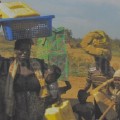
 Witnesses accuse Uganda Land Commission of fraud in Namboole land acquisition
Witnesses accuse Uganda Land Commission of fraud in Namboole land acquisition
 Mubende Land Grab: Witnessradio.org presents another petition to Land Inquiry Commission, Wants All Titles being used to evict Natives to be Investigated
Mubende Land Grab: Witnessradio.org presents another petition to Land Inquiry Commission, Wants All Titles being used to evict Natives to be Investigated
 Parliament sets up committee to investigate Mubende land title fraud
Parliament sets up committee to investigate Mubende land title fraud
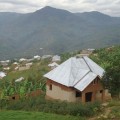 Land Commission inquiry to investigate Kilembe Mines land ownership
Land Commission inquiry to investigate Kilembe Mines land ownership
You may like
MEDIA FOR CHANGE NETWORK
Young activists fight to be heard as officials push forward on devastating project: ‘It is corporate greed’
Published
2 months agoon
August 27, 2025
“We refuse to inherit a damaged planet and devastated communities.”
Youth climate activists in Uganda protesting the East African Crude Oil Pipeline, or EACOP, are frustrated with the government’s response to their demonstration as the years-long project moves forward.
According to the country’s Daily Monitor, youth activists organized with End Fossil Occupy Uganda took to the streets of Kampala in early August to protest EACOP. The pipeline, under construction since about 2017 and now 62 percent complete, is set to transport crude oil from Uganda’s Tilenga and Kingfisher fields through Tanzania to the Indian Ocean port of Tanga by 2026.
Activists noted the devastating toll, with group spokesperson Felix Musinguzi saying that already around 13,000 people “have lost their land with unfair compensation” and estimating that around 90,000 more in Uganda and Tanzania could be affected. End Fossil Occupy Uganda has also warned of risks to vital water sources, including Lake Victoria, which it says 40 million people rely on.
The group has been calling on financial institutions to withdraw funding for the project. Following a demonstration at Stanbic Bank earlier in the month, 12 activists were arrested, according to the Daily Monitor.
Some protesters were seen holding signs reading “Every loan to big oil is a debt to our children” and “It’s not economic development; it is corporate greed.”
Meanwhile, the regional newspaper says the government has described the activist efforts as driven by foreign actors who mean to subvert economic progress.
EACOP’s site notes that its shareholders include French multinational TotalEnergies — owning 62 percent of the company’s shares — Uganda National Oil Company, Tanzania Petroleum Development Corporation, and China National Offshore Oil Corporation.
The wave of young people taking action against EACOP could be seen as a sign of growing public frustration over infrastructural projects that promise economic gain while bringing harm to local communities and ecosystems. Activists say residents face costly threats from pipeline development, such as forced displacement and the loss of livelihoods.
Environmental hazards to Lake Victoria could also disrupt water supplies and food systems, bringing the potential for both financial and health impacts. Just 10 years ago, an oil spill in Kenya caused a humanitarian crisis. The Kenya Pipeline Company reportedly attributed the spill to pipeline corrosion, which led to contamination of the Thange River and severe illness.
The EACOP project has already locked the region into close to a decade of development, and concerns about the pipeline and continued investments in carbon-intensive systems go back just as long. Youth activists, as well as concerned citizens of all ages, say efforts to move toward climate resilience can’t wait. “As young people, we refuse to inherit a damaged planet and devastated communities,” Musinguzi said, per the Monitor.
Source: The Cool Down
Related posts:

 Put people above profits – Climate Activists urge Total to defund EACOP
Put people above profits – Climate Activists urge Total to defund EACOP
 EACOP: The number of activists arrested for opposing the project is already soaring in just a few months of 2025
EACOP: The number of activists arrested for opposing the project is already soaring in just a few months of 2025
 EACOP activism under Siege: Activists are reportedly criminalized for opposing oil pipeline project in Uganda.
EACOP activism under Siege: Activists are reportedly criminalized for opposing oil pipeline project in Uganda.
 The East African Court of Justice fixes the ruling date for a petition challenging the EACOP project.
The East African Court of Justice fixes the ruling date for a petition challenging the EACOP project.
WITNESS RADIO MILESTONES
Why matooke farming is losing ground in Bukedi
Published
2 months agoon
August 27, 2025
On a humid morning in Namusango Village, Kamonkoli South Ward, Kamonkoli Town Council in Budaka District, 58-year-old farmer James Kainja walks at the edge of what used to be his flourishing matooke garden. For generations, the green banana plant—matooke—stood tall in Uganda’s farmlands, its broad leaves swaying in the wind and its heavy bunches promising a warm, hearty meal. But in Bukedi Sub-region today, that story is fading. Between the tired banana stools, spear grass has taken over. A few bunches hang small and low quality. “We used to harvest every week,” Mr Kainja says, dusting his palms.
“Now, it is once in a while and the money is not worth the struggle,” he adds. Across Bukedi, particularly in Pallisa, Budaka, Butebo, and Kibuku, the banana plants are shrinking back, replaced by maize, cassava, rice, and other faster-growing crops. The sub-region that once sent truckloads of matooke to nearby districts now measures its banana harvest in small piles under tarpaulin. Where the green canopy of banana leaves once dominated, the landscape has changed. For many farmers, the decision is not about abandoning tradition but about survival.
Matooke as culture
In many Bukedi households, matooke still holds cultural value, especially during weddings, funerals, and community gatherings. But with fewer plantations, sourcing enough bunches has become harder and more expensive. Matooke is now imported into Bukedi from Mbale and Mbarara. Mr Abubakar Nanghejje, an elder in Kibuku, warns: “If this trend continues, our children may only know matooke from stories. We are losing more than a crop—we are losing a piece of who we are.”
He adds that matooke, once abundant, is now a luxury: “People only access matooke during ceremonies because the cost of a bunch has turned expensive,” he explains. Within Kibuku Town Council, women sell matooke in pieces: three or four fingers for Shs1,000, while a complete bunch costs between Shs30,000 and Shs35,000. This contrasts sharply with central and western Uganda, where matooke is more than a crop—it is an identity, a culture, and a livelihood. Yet across the country, banana plantations are thinning out, replaced by maize, beans, or simply abandoned.
Farmers’ voices
Mr Peter Mwigala, a 73-year-old farmer from Bubulanga Village, recalls with nostalgia: “I grew matooke for 30 years. But now my plantation is less than half what it used to be. The pests are too many, the prices are too low, and the rains are no longer reliable.” His story echoes across villages, evidence of a slow, steady decline in matooke production. This decline has unfolded over two to three decades, rather than as a sudden collapse. Agricultural researchers point to several reasons. Among them, banana bacterial wilt (BBW), banana weevils, and nematodes that have devastated plantations in major banana-growing areas. These pests cause premature ripening, rotting, and eventual uprooting of infected plants.
“When wilt enters your plantation, you can lose everything in one season,” says Mr Abner Botiri, an agriculture officer in Budaka. He further explains that erratic rainfall and prolonged dry spells also take a toll. Matooke thrives in consistent moisture, but under drought stress it yields smaller bunches. Repeated losses have led some farmers to abandon the crop entirely. Continuous cultivation without soil management has also depleted many banana-growing soils. Beyond agronomic challenges, the economics of matooke farming have shifted dramatically. Local market prices fluctuate widely depending on supply, while transport costs have risen sharply.
Mr John Gwanyi, a 71-year-old farmer, recalls: “In the 1980s and 1990s, matooke farmers could educate children through primary, secondary, and tertiary levels, and still cover basic needs. Today, a whole plantation might not pay for one term’s school fees.” Urbanisation has worsened the trend. Younger generations moving to towns now eat rice, spaghetti, and bread more frequently.
The once sacred matooke meal is no longer the undisputed centrepiece of Ugandan dining tables. Meanwhile, land fragmentation leaves families with smaller plots, unable to sustain large banana plantations. In some areas, higher-value or quicker-return crops like coffee, passion fruit, or maize dominate. As one agricultural economist notes: “A bunch of matooke takes nine months to mature, but maize can be ready in three months. For cash-strapped farmers, that difference matters.
Government interventions
Government and research institutions have made several attempts to address the situation. The National Agricultural Research Organisation (NARO) has introduced resistant banana varieties and promoted good agronomic practices. NGOs are training farmers in mulching, proper spacing, and integrated pest management. Still, the decline carries a cultural weight. In Buganda, for instance, matooke is central to marriage ceremonies, community gatherings, and daily life.
“When you serve matooke at a function, it shows respect,” explains Mr Badiru Kirya, a cultural leader in Obwa Ikumbania bwa Bugwere. Yet, Mr Kirya attributes part of the decline to newer banana varieties introduced by research agencies. “The old varieties planted by our grandparents could withstand weather changes better. These new varieties are weaker against climate volatility,” he says. He also notes that soil infertility and population pressure have accelerated the decline, as families squeeze more onto smaller pieces of land.
National standing
Uganda remains one of the world’s largest banana consumers, with per capita consumption estimated at 250–300 kg annually in some regions. Yet, national banana production has generally declined. According to the Uganda Bureau of Statistics (UBOS) 2024 census, only 27.1 percent of households participate in banana cultivation. Dr Sadik Kassim, the NARO deputy director general in-charge of agricultural promotion, highlights several factors. “Soil fertility has gone low, while pests and disease build-up have grossly affected matooke gardens. Erratic rainfall and climate change further reduce yields.
Poor agricultural practices have made the decline worse,” he says. However, Dr Kassim dismisses the claim that new technologies are to blame. Similarly, Dr Rabooni Tumuhimbise, the director of research at Rwebitaba Zonal Agricultural Research and Development Institute, said: “As of now, I am not aware that Bukedi has registered a decline in banana production. This needs verification before conclusions.” But farmers and local leaders insist the reality is clear: matooke is disappearing from Bukedi. Mr Arthur Wako Mboizi, a seasoned politician and opinion leader, argues: “Bukedi has drastically registered a total decline in banana production due to various factors, including soil infertility, diseases, and erratic rainfall.”
Efforts are underway to add value. Under the Presidential Initiative on Banana, NARO and Kilimo Trust have developed matooke-based products such as flour, bread, and cakes. More than 13 million Ugandans consume bananas as their staple, and 75 percent of farmers grow them, contributing nearly $440 million annually to the economy. Yet, for Bukedi, the reality is sobering. The once proud producer of matooke is a shadow of its former self. As Mr Nanghejje, the Kibuku elder, put it: “We are losing more than a crop. We are losing a piece of who we are.”
Background
In 2024, national banana production was estimated at 6 million tonnes annually, 70 percent of which was consumed at household level and 30 percent sold.
The Banana Merchandise Trade Statistics Bulletin (2024) shows export earnings rose from $2.1 million in June 2023 to $2.4 million in June 2024. Still, yields remain below potential—currently 5–30 tonnes per hectare compared to an attainable 60–70 tonnes. Uganda’s banana losses to wilt disease are massive, with officials estimating a 71.4 percent loss of potential harvest annually, worth nearly $300 million.
Source: Monitor
Related posts:

 Govt injects Shs47b into cassava growing in Bukedi
Govt injects Shs47b into cassava growing in Bukedi
 Uganda’s natives are becoming more powerless; losing land everyday, says a New Research Report
Uganda’s natives are becoming more powerless; losing land everyday, says a New Research Report
 Omoro farmers task Naro on crop varieties
Omoro farmers task Naro on crop varieties
 Uganda losing agricultural advantage to neighbours – UN.
Uganda losing agricultural advantage to neighbours – UN.
MEDIA FOR CHANGE NETWORK
Cases against anti-EACOP activism are skyrocketing in Uganda. Witness Radio has documented close to 60 cases in the last eight months.
Published
2 months agoon
August 7, 2025
By the dedicated efforts of the Witness Radio team.
The Witness Radio team has documented nearly 60 cases of arrest, detention, and prosecution targeting activists protesting the East African Crude Oil Pipeline (EACOP) since January 2025.
The $5 billion EACOP project, led by TotalEnergies and its partners, involves the construction of a 1,444km heated pipeline from Hoima in Uganda to Tanga in Tanzania. This pipeline, which will transport crude oil from the Tilenga and Kingfisher fields, has been a subject of controversy due to its potential environmental and social impacts.
As activism against the EACOP Project grows in Uganda, youth activists leading the cause face strong resistance from the government and its agents, who are pushing for the development of oil activities, including EACOP. Their bravery in the face of such adversity is truly inspiring.
The activists have continuously been suppressed and weakened with torture, unlawful arrests, and prolonged detentions accompanied by unscrupulous charges. The injustice they face is a call for empathy from all who hear their story.
The latest incident happened on Friday, August 1, 2025, when the police brutally arrested 12 environmental activists at Stanbic Bank Headquarters in Kampala. The urgency of the situation is apparent, as the activists were protesting against the bank’s financing of the EACOP project.
On March 26, 2025, EACOP Ltd., the company in charge of the construction and future operation of the EACOP project, announced new project financing from regional banks such as Stanbic Bank Uganda Limited, KCB Bank Uganda, African Export-Import Bank (Afreximbank), the Standard Bank of South Africa Limited, and the Islamic Corporation for the Development of the Private Sector (ICD). The announcement sparked widespread alarm and outcry, with activists urging the banks to immediately withdraw their support and halt the financing of the project.
These activists, individuals from Civil Society Organisations (CSOs) and environmental enthusiasts, strongly oppose the implementation of the EACOP project. They cite its harmful effects, including the displacement of thousands of people, damage to sensitive ecosystems, a threat to water resources, and exacerbating climate change mainly through carbon emissions. They argue that the short-term economic benefits do not justify these long-term consequences.
In doing their work, they have ended up in the hands of the authorities with numerous charges slapped against them. The latest remandees include Teopista Nakyambade, Shammy Nalwadda, Dorothy Asio, Shafik Kalyango, Habibu Nalungu, Noah Kafiiti, Ismael Zziwa, Ivan Wamboga, Akram Katende, Baker Tamale, Keisha Ali, and Mark Makobe.
On the same day of their arrest, the victims were arraigned before the Buganda Road Chief Magistrate Winnie Nankya, who charged them with common nuisance. She later remanded them to Luzira prison until August 18, 2025.
Section 160 of the Penal Code Act, Cap 120 states that a person convicted of common nuisance faces a one-year imprisonment.
In response, the Stanbic Bank manager for corporate communications, Mr. Kenneth Agutamba, confirmed that the bank is financing the EACOP project, justifying that it aligns with and balances environmental sustainability and economic development in the country.
Ever since this year started, Witness Radio has documented 56 cases of arrests and illegal detentions of EACOP activists, with most of them being charged with common nuisance. Below is a chronology of these incidents as they happened.
| Date | Incident | Charge |
| 26th Feb. 2025 | 11 activists were arrested while marching to the European Union offices deliver a petition concerning TotalEnergies’ involvement in harmful fossil fuels in Uganda. | Common nuisance |
| 19th Mar. 2025 | 4 activists were arrested while marching to the Parliament of Uganda to deliver a petition to the speaker, Anita Annet Among, in protest of the ongoing construction of the EACOP Project. | Common nuisance |
| 2nd April, 2025 | 9 activists were arrested while marching to Stanbic bank offices. | Common nuisance |
| 23rd of April, 2025 | A group of 11 activists were arrested as peacefully went to deliver a petition to KCB Uganda offices challenging its will to fund the EACOP project. | Criminal trespass. |
| 21 May 2025 | 9 activists arrested while protesting KCB financing of the EACOP | Common nuisance. |
| 1 Aug. 2025. | 12 activists arrested for protesting the Stanbic bank funding. | common nuisance |
According to Witness Radio’s special report, “Activism on Trial: Despite the increasing repressive measures, Uganda’s EACOP Protesters are achieving unexpected victories in the country’s justice systems,” released last month, a case review revealed that while Uganda’s justice system is being used to suppress the activities of youth activists opposing the EACOP project, many of these cases have lacked merit and were ultimately dismissed.
The report found that none of the activists had been convicted, though they continue to face prolonged court processes marked by repeated adjournments. “Of a sample of 20 documented cases since 2022 involving the arrest of over 180 activists, 9 case files have either been dismissed by the courts or closed by the police due to lack of prosecution, another signal indicating the relevance and legitimacy of their work, while 11 cases remain ongoing,” the report noted.
Related posts:

 EACOP activism under Siege: Activists are reportedly criminalized for opposing oil pipeline project in Uganda.
EACOP activism under Siege: Activists are reportedly criminalized for opposing oil pipeline project in Uganda.
 Breaking: over 350,000 acres of land were grabbed during Witness Radio – Uganda’s seven months ban.
Breaking: over 350,000 acres of land were grabbed during Witness Radio – Uganda’s seven months ban.
 EACOP: The number of activists arrested for opposing the project is already soaring in just a few months of 2025
EACOP: The number of activists arrested for opposing the project is already soaring in just a few months of 2025
 Crackdown on EACOP protesters intensifies: 35 Activists arrested in just four months.
Crackdown on EACOP protesters intensifies: 35 Activists arrested in just four months.

Know Your Land rights and environmental protection laws: a case of a refreshed radio program transferring legal knowledge to local and indigenous communities to protect their land and the environment at Witness Radio.

Gov’t Seeks Land to Establish Palm Oil Mill and Nursery in Busoga

New! The Eyes on a Just Energy Transition in Africa Program is now live on Witness Radio.

RDCs, Local Leaders Accused of Grabbing 70-Acre Ancestral Land

Uganda is on a mission to plant over 40 million trees by October 3, 2025, a crucial step in combating the alarming decline in its forest cover.

The 4th African Forum on Business and Human Rights: The rapidly escalating investment in Africa is urgently eroding environmental conservation and disregarding the dignity, the land, and human rights of the African people.

Oil palm tree growing in Uganda: The National Oil Palm Project is threatening to evict hundreds of smallholder farmers to expand its operations.

The 4th African Forum on Business and Human Rights: The African continent is lagging, with only a few member states having adopted the National Action Plan (NAP) on Business and Human Rights.

Innovative Finance from Canada projects positive impact on local communities.
Over 5000 Indigenous Communities evicted in Kiryandongo District
Petition To Land Inquiry Commission Over Human Rights In Kiryandongo District
Invisible victims of Uganda Land Grabs
Resource Center
- REPARATORY AND CLIMATE JUSTICE MUST BE AT THE CORE OF COP30, SAY GLOBAL LEADERS AND MOVEMENTS
- LAND GRABS AT GUNPOINT REPORT IN KIRYANDONGO DISTRICT
- THOSE OIL LIARS! THEY DESTROYED MY BUSINESS!
- RESEARCH BRIEF -TOURISM POTENTIAL OF GREATER MASAKA -MARCH 2025
- The Mouila Declaration of the Informal Alliance against the Expansion of Industrial Monocultures
- FORCED LAND EVICTIONS IN UGANDA TRENDS RIGHTS OF DEFENDERS IMPACT AND CALL FOR ACTION
- 12 KEY DEMANDS FROM CSOS TO WORLD LEADERS AT THE OPENING OF COP16 IN SAUDI ARABIA
- PRESENDIANTIAL DIRECTIVE BANNING ALL LAND EVICTIONS IN UGANDA
Legal Framework
READ BY CATEGORY
Newsletter
Trending
-
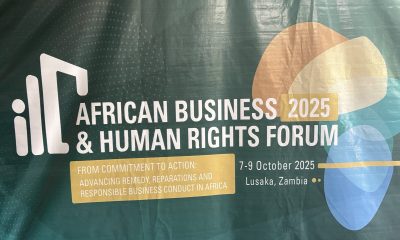
 MEDIA FOR CHANGE NETWORK2 weeks ago
MEDIA FOR CHANGE NETWORK2 weeks agoThe 4th African Forum on Business and Human Rights: The rapidly escalating investment in Africa is urgently eroding environmental conservation and disregarding the dignity, the land, and human rights of the African people.
-
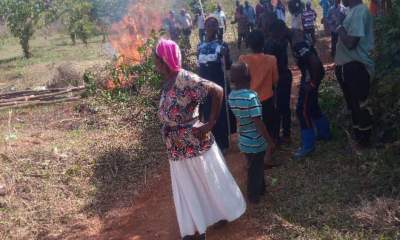
 MEDIA FOR CHANGE NETWORK6 days ago
MEDIA FOR CHANGE NETWORK6 days agoOil palm tree growing in Uganda: The National Oil Palm Project is threatening to evict hundreds of smallholder farmers to expand its operations.
-
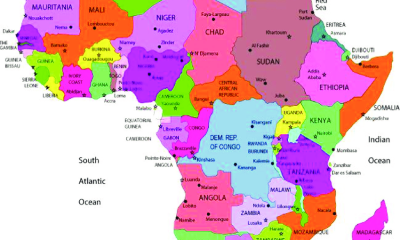
 MEDIA FOR CHANGE NETWORK2 weeks ago
MEDIA FOR CHANGE NETWORK2 weeks agoThe 4th African Forum on Business and Human Rights: The African continent is lagging, with only a few member states having adopted the National Action Plan (NAP) on Business and Human Rights.
-
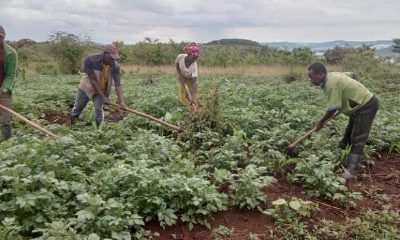
 MEDIA FOR CHANGE NETWORK2 weeks ago
MEDIA FOR CHANGE NETWORK2 weeks agoThe EAC Seed and Plant Varieties Bill 2025 targets organic seeds, aiming to replace them with modified seeds, say smallholder farmers.
-
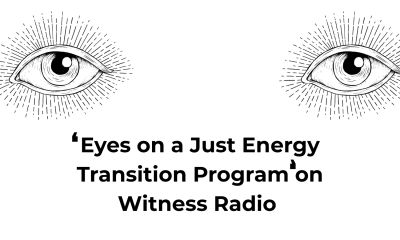
 MEDIA FOR CHANGE NETWORK4 days ago
MEDIA FOR CHANGE NETWORK4 days agoNew! The Eyes on a Just Energy Transition in Africa Program is now live on Witness Radio.
-

 MEDIA FOR CHANGE NETWORK2 weeks ago
MEDIA FOR CHANGE NETWORK2 weeks agoUse COP30 in Belém, Brazil, to fix the historical injustices meted out against Afro-descendant and Indigenous Peoples – CSOs demand.
-
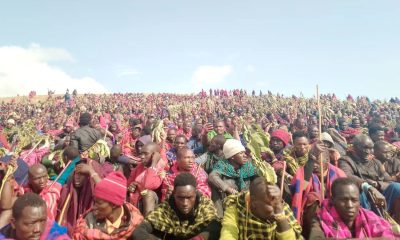
 NGO WORK2 weeks ago
NGO WORK2 weeks agoThe Oakland Institute Calls on the Tanzanian Presidential Land Commissions to Respect & Ensure Rights of Maasai Living in the Ngorongoro Conservation Area
-
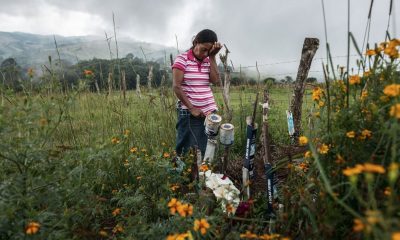
 NGO WORK2 weeks ago
NGO WORK2 weeks agoDocumenting killings and disappearances of land and environmental defenders
